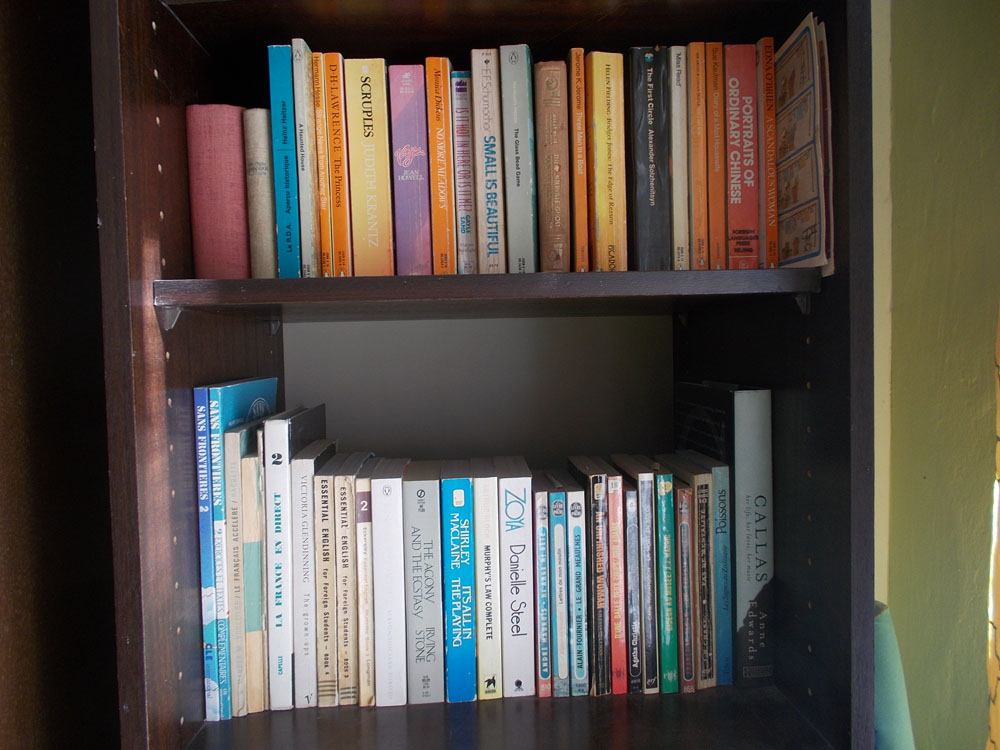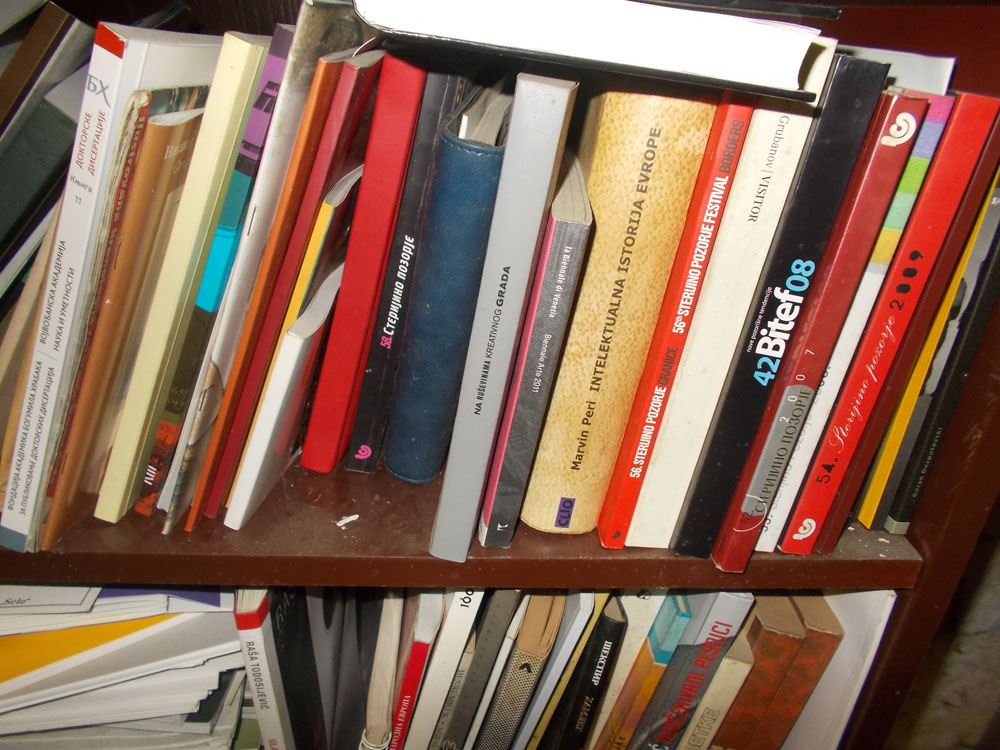Kako je biblioteka doprinela odrastanju Suzan Orlin (Susan Orlean), novinarke, autorke sedam knjiga, saradnice uglednog Njujorkera… O važnosti i osećaju pozajmljivanja knjige uz člansku kartu biblioteke piše sećajući se detinjstva. Preneto iz časopisa New Yorker, 5. oktobar 2018. Foto: korzoportal

Susan Orlean: Growing Up in the Library
I grew up in libraries, or at least it feels that way. My family lived in the suburbs of Cleveland, about a mile from the brick-faced Bertram Woods Branch of the Shaker Heights Public Library system. Throughout my childhood, starting when I was very young, my mother drove me there a couple of times a week. We walked in together, but, as soon as we passed through the door, we split up, each heading to our favorite section. The library might have been the first place that I was ever given independence. Even when I was maybe four or five years old, I was allowed to go off on my own. Then, after a while, my mother and I reunited at the checkout counter with our finds. Together, we waited as the librarian pulled out each date card and, with a loud chunk-chunk, stamped a crooked due date on it, below a score of previous crooked due dates that belonged to other people, other times.
Our visits were never long enough for me—the library was so bountiful. I loved wandering around the shelves, scanning the spines of the books until something happened to catch my eye. Those trips were dreamy, frictionless interludes that promised I would leave richer than I arrived. It wasn’t like going to a store with my mom, which guaranteed a tug-of-war between what I desired and what she was willing to buy me; in the library, I could have anything I wanted. On the way home, I loved having the books stacked on my lap, pressing me under their solid, warm weight, their Mylar covers sticking to my thighs. It was such a thrill leaving a place with things you hadn’t paid for; such a thrill anticipating the new books we would read. We talked about the order in which we were going to read them, a solemn conversation in which we planned how we would pace ourselves through this charmed, evanescent period of grace until the books were due. We both thought that all the librarians at the Bertram Woods branch were beautiful. For a few minutes, we discussed their beauty. My mother then always mentioned that, if she could have chosen any profession, she would have chosen to be a librarian, and the car would grow silent for a moment as we both considered what an amazing thing that would have been.

When I was older, I usually walked to the library by myself, lugging as many books as I could carry. Occasionally, I did go with my mother, and the trip remained as enchanted as it had been when I was small. Even when I was in my last year of high school and could drive to the library, my mother and I still went together now and then, and the trip unfolded exactly as it used to, with all the same beats and pauses and comments and reveries, the same pensive rhythm. My mother died two years ago, and since then, when I miss her, I like to picture us in the car together, going for one more magnificent trip to Bertram Woods.
My family was big on the library. We were very much a reading family, but we were more a borrow-a-book-from-the-library family than a bookshelves-full-of-books family. My parents valued books, but they had grown up in the Depression, aware of the quicksilver nature of money, and they had learned the hard way that you shouldn’t buy what you could borrow. Because of that frugality, or perhaps despite it, they also believed that you should read a book for the experience of reading it. You shouldn’t read it in order to have an object that had to be housed and looked after forever, a memento of the purpose for which it was obtained. The reading of the book was a journey. There was no need for souvenirs.
By the time I was born, my parents’ financial circumstances were comfortable, and they learned how to splurge a little, but their Depression-era mentality adhered stubbornly to certain economies, which included not buying books that could be obtained easily from the library. Our uncrowded bookshelves at home had several sets of encyclopedias (an example of something not easily borrowed) and an assortment of other books that, for one reason or another, my parents had ended up buying. That included a few mild sex manuals. “Ideal Marrige: Its Phsyhology and Technique” is the one I remember best—I read it whenever my parents were out of the house. I assume that they bought the sex books because they would have been embarrassed to present them at the checkout desk of the library. There were also some travel guides, some coffee-table books, a few of my father’s law books, and a dozen or so novels that were either gifts or somehow managed to justify being owned outright.
When I left for college—I went to the University of Michigan—one of the many ways I differentiated myself from my parents was that I went wild for owning books. I think buying textbooks was what got me going. All I know is that I lost my appreciation for the slow pace of making your way through a library and for having books on borrowed time. I wanted to have my books in piles around me, forming totem poles of the narratives I’d visited. In my junior year, I moved into an apartment, lined it with bookcases, and loaded them with hardcovers. I used the college library for research, but otherwise I turned into a ravenous buyer of books. I couldn’t walk into a bookstore without leaving with something, or several somethings. I loved the alkaline tang of new ink and paper, a smell that never emanated from a broken-in library book. I loved the alkaline tang of new ink and paper, a smell that never emanated from a broken-in library book. I loved the crack of a freshly flexed spine and the way that the untouched pages almost felt damp, as if they were still wet with creation. I sometimes wondered if I was catching up after spending my childhood amid sparsely settled bookcases. But the reason didn’t matter to me. I actually became somewhat evangelical about book ownership. Sometimes I fantasized about starting a bookstore. If my mother ever mentioned to me that she was on the waiting list for a book at the library, I got annoyed and asked why she didn’t just go buy a copy.
Once I was done with college, and done with researching term papers in the stacks of the Harold T. and Vivian B. Shapiro Undergraduate Library, I sloughed off the memory of those marvellous childhood trips to the Bertram Woods branch, and began, for the first time in my life, to wonder what libraries were for.
It might have remained that way, and I might have spent the rest of my life thinking about libraries only wistfully, the way I thought about, say, the amusement park I went to as a kid. Libraries might have become just a bookmark of memory more than an actual place, a way to call up an emotion of a moment that occurred long ago, something that was fused with “mother” and “the past” in my mind. But then libraries came back into my life unexpectedly. In 2011, my husband accepted a job in Los Angeles, so we left New York, where we had been living, and went west. I didn’t know the city well, but I’d spent time there over the years, visiting cousins. When I became a writer, I went to Los Angeles often to work on magazine pieces and books. On those trips, I had been to and from the beach, and up and down the canyons, and in and out of the Valley, and back and forth to the mountains, but I never gave downtown a second thought, assuming that it was just a glassy landscape of office buildings which hollowed out by five o’clock every evening. I though of Los Angeles as a radiant doughnut, rimmed by milky ocean and bristling mountains, with a big hole in the middle. I never went to the public library, never thought about it, although I’m sure I assumed there was one, and probably a main branch, probably downtown.
PROČITAJTE I: narodna-biblioteka-srbije-75-godina-od-stradanja, sabacka-biblioteka-u-novoj-zgradi, intervju-damir-zlatar-frey-podite-nekome-u-susret, ilidiko-erdei-cekajuci-ikeu, ima-li-borisav-stankovic-naslednike
